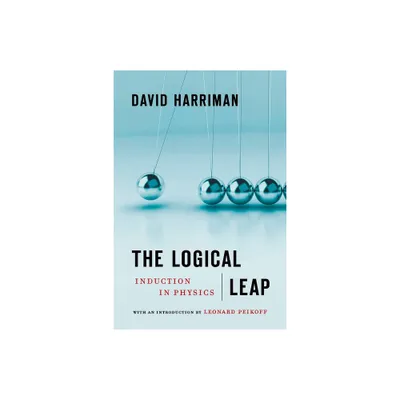Home
The Logical Leap: Induction Physics
Loading Inventory...
Barnes and Noble
The Logical Leap: Induction Physics
Current price: $24.00


Barnes and Noble
The Logical Leap: Induction Physics
Current price: $24.00
Loading Inventory...
Size: Paperback
*Product Information may vary - to confirm product availability, pricing, and additional information please contact Barnes and Noble
A groundbreaking solution to the problem of induction, based on Ayn Rand's theory of concepts.
Inspired by and expanding on a series of lectures presented by Leonard Peikoff, David Harriman presents a fascinating answer to the problem of induction-the epistemological question of how we can know the truth of inductive generalizations.
Ayn Rand presented her revolutionary theory of concepts in her book
Introduction to Objectivist Epistemology
. As Dr. Peikoff subsequently explored the concept of induction, he sought out David Harriman, a physicist who had taught philosophy, for his expert knowledge of the scientific discovery process.
Here, Harriman presents the result of a collaboration between scientist and philosopher. Beginning with a detailed discussion of the role of mathematics and experimentation in validating generalizations in physics-looking closely at the reasoning of scientists such as Galileo, Kepler, Newton, Lavoisier, and Maxwell-Harriman skillfully argues that the inductive method used in philosophy is in principle indistinguishable from the method used in physics.
Inspired by and expanding on a series of lectures presented by Leonard Peikoff, David Harriman presents a fascinating answer to the problem of induction-the epistemological question of how we can know the truth of inductive generalizations.
Ayn Rand presented her revolutionary theory of concepts in her book
Introduction to Objectivist Epistemology
. As Dr. Peikoff subsequently explored the concept of induction, he sought out David Harriman, a physicist who had taught philosophy, for his expert knowledge of the scientific discovery process.
Here, Harriman presents the result of a collaboration between scientist and philosopher. Beginning with a detailed discussion of the role of mathematics and experimentation in validating generalizations in physics-looking closely at the reasoning of scientists such as Galileo, Kepler, Newton, Lavoisier, and Maxwell-Harriman skillfully argues that the inductive method used in philosophy is in principle indistinguishable from the method used in physics.


















